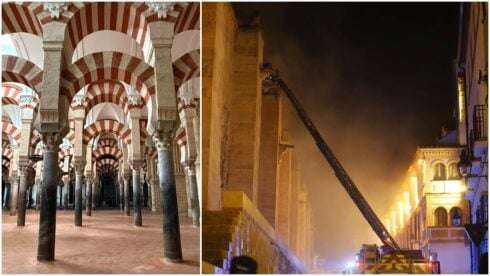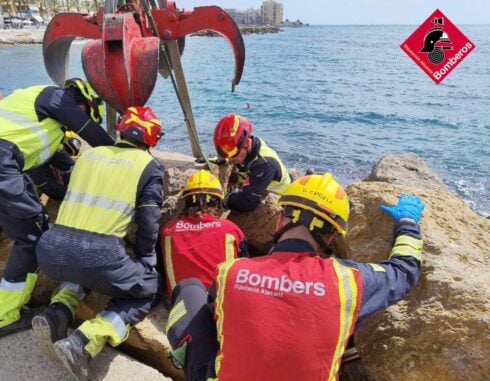By Alfred Clarke
THE recent fracturing of a series of inside slabs of a fast-track rail tunnel in Spain has led to a row between regional politicians and Madrid.
It comes over a decade since a tunnelling team hit a major aquifer while drilling the 7km-long tunnel under Valle de Abdalajis between Malaga and Antequera.
The place where the new fracture happened was in the tunnel below the village of 2500 people.
The collapse is in the main rail tunnel for high-speed AVE trains between Malaga and Madrid.
The incident occurred on July 23 during vital maintenance after the massive rainfall this spring.
But things didn’t go to plan and during the works, water started bursting out of cracks in the rocks and damaging the inside of the tunnel.
The fracturing of the concrete of the inside of the tunnel is due to overlying aquifers which are embedded in the porous limestone rocks.

This issue was first discovered during the building of two parallel tunnels in the mid 2000s.
The problem was partly fixed but never completely and a risk factor was always looming above, now that the thought of another fracture has become a reality.
The village already has the most expensive water in Spain.
Due to a shortage in water supply due to the cut in the aquifer, the national railway body ADIF has had to pay for water to be delivered for the last decade.
According to official figures, some €15.7 million over the last five years alone had to be spent in bringing in water tankers for the local population. The figure is well over double if we take the previous years.
Currently, the village is supplied with 450,000 per day, costing around €9,000.
But the knock-on cost could be far higher for the authorities.
Experts say that one of the two tunnels may remain closed for six months at the very least, and could possibly take longer.
This leaves only a single tunnel open for the remaining trains to pass through – dozens a day to Madrid and Barcelona, as well as Cordoba and Sevilla, which will now have to go both ways through one single tunnel.
READ MORE: Feasibility study for Costa del Sol train – what’s involved in building the transport upgrade?

Currently the delay is between 10 and 20 minutes per train, which is often made up for the rest of the journey.
However, there are serious concerns that if the other tunnel is damaged, a huge tourist infrastructure issue would occur.
“If the spread of the fracture and leakage got into the other tunnel, there would be serious concerns,” explained expat expert Ray Ward.
“Ultimately if this were to happen, it would cause a massive toll in the tourist sector,” he continued.
“There are around 22 trains just between Madrid and Barcelona alone on a daily basis, and they bring around 10,000 passengers a day, a significant chunk of tourists.
“The quick circulation of these trains allows for the tourist sector in Malaga and its surrounding area to thrive.
“But if the train line was shut it would lead to the touristic hotspots we know of today, like Malaga, to dwindle in popularity as it isn’t such a viable option for train travellers.
“The knock-on effect and cost would be huge.”
Click here to read more Spain News from The Olive Press.








